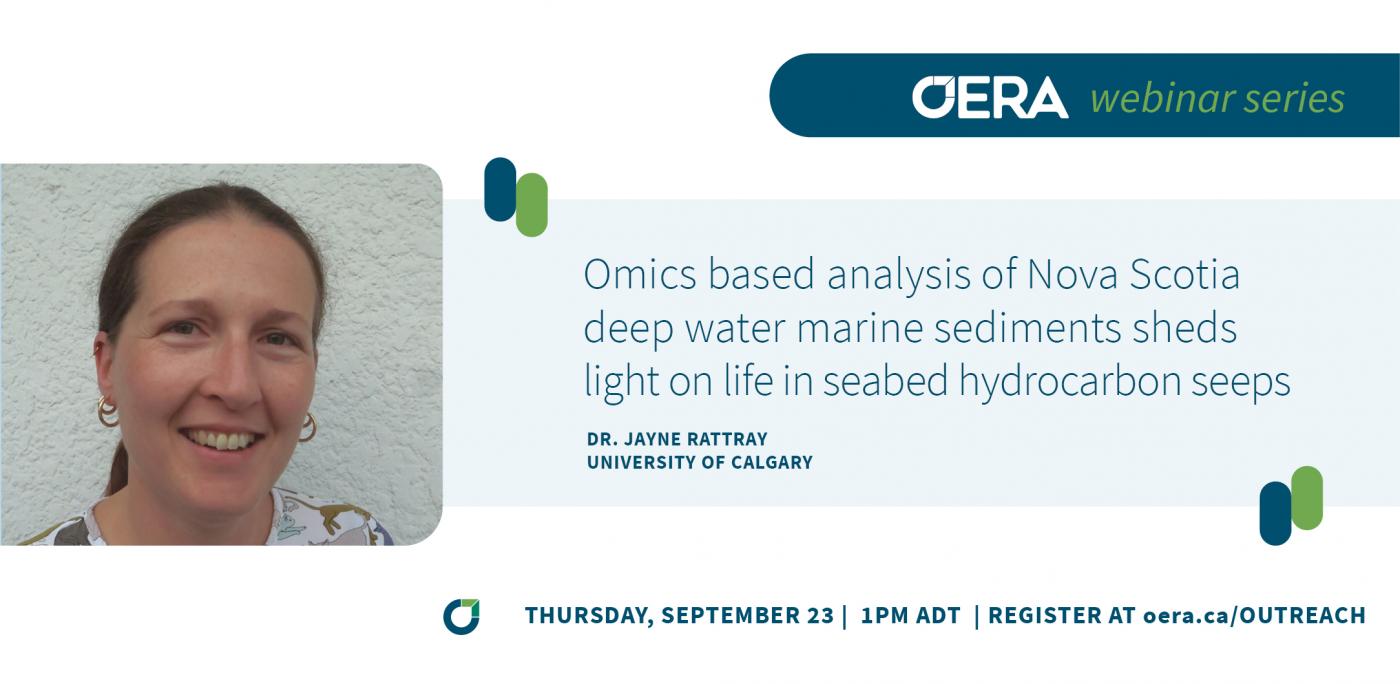Dr. Jayne E. Rattray, Research Associate, Geomicrobiology Group, University of Calgary
Omics is the study of biological molecules like DNA, RNA, proteins and by-products of metabolism. In microbiology, omics-based techniques identify and quantify these biological molecules by computationally reassembling them to describe the type, function, and dynamics of microorganisms, without having to grow them in lab cultures. In this study, metagenomics and metabolomics were combined to reveal the kinds of microorganisms and energy sources available to sustain them in deep, dark and cold hydrocarbon-rich marine sediments. At a newly discovered Scotian Basin “cold seep”, diverse bacteria and archaea use hydrocarbons as a food source without the need for oxygen. Understanding biology in this environment is useful for identifying microbes that can be used as indicators of seabed hydrocarbon seepage to help de-risk deep-sea oil reservoir exploration. In addition, the microorganisms identified in the deep biosphere consumed methane and other greenhouse gases, preventing their escape into the atmosphere and associated global warming.

